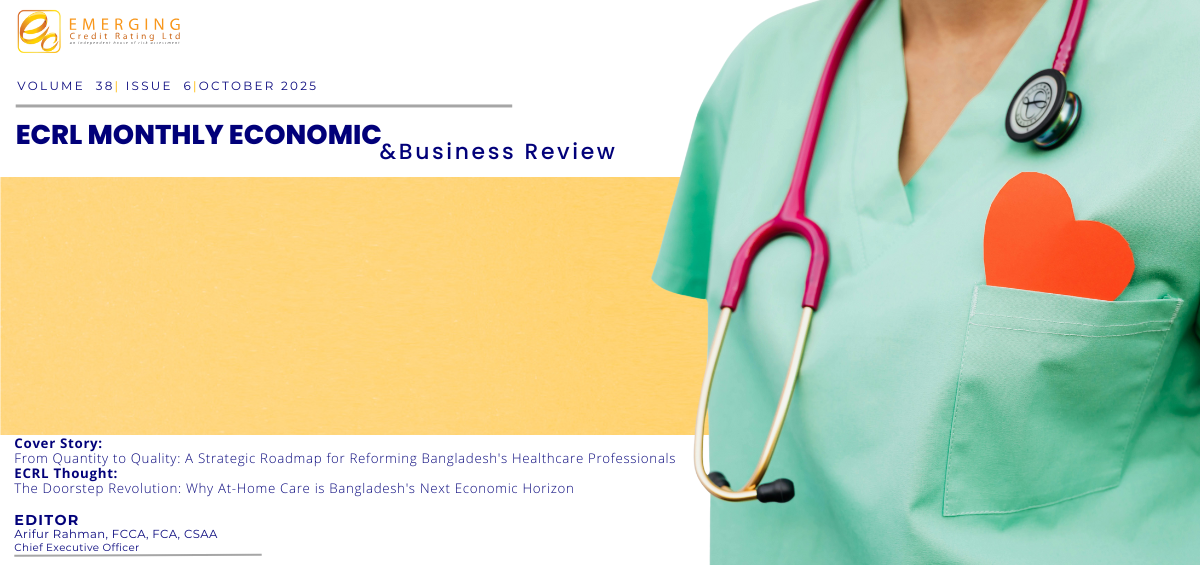 As Bangladesh stands at the cusp of significant economic and social transformation, the resilience of our healthcare system has emerged as a defining national priority. It’s no longer just about building hospitals; it’s about investing in the skilled, compassionate professionals who are the lifeblood of our nation’s well-being. This month, we delve into the heart of this challenge, exploring the strategic reforms needed to empower our healthcare workforce for a healthier, more prosperous future.
As Bangladesh stands at the cusp of significant economic and social transformation, the resilience of our healthcare system has emerged as a defining national priority. It’s no longer just about building hospitals; it’s about investing in the skilled, compassionate professionals who are the lifeblood of our nation’s well-being. This month, we delve into the heart of this challenge, exploring the strategic reforms needed to empower our healthcare workforce for a healthier, more prosperous future.
Our Cover Story, “A Strategic Roadmap for Reforming Bangladesh’s Healthcare Professionals,” lays out the systemic challenges and opportunities we face. It argues that isolated fixes are insufficient. Instead, a comprehensive, integrated strategy is required to align education, regulation, and professional practice to meet the demands of a modernizing nation. The story underscores a critical point: our healthcare professionals are not just a resource but a strategic national asset that requires deliberate and sustained investment.
This forward-looking perspective is complemented by our ECRL Thought feature, “The Doorstep Revolution: Why At-Home Care is Bangladesh’s Next Economic Horizon.” This article explores an innovative and rapidly growing frontier in healthcare delivery. It makes a compelling case that investing in a skilled workforce for at-home care can address pressing social needs—like our aging population—while simultaneously unlocking a significant new economic sector, creating jobs, and improving quality of life.
At the very core of this discussion is the nursing profession. To gain an expert perspective, we sat down for an exclusive Interview with Dr. Md. Shariful Islam, the President of the Bangladesh Nurses Association. In a candid conversation, Dr. Islam paints a clear picture of the state of nursing in the country. He highlights the “critical shortage of skilled nurses” and identifies systemic barriers, from the lack of a structured career path to the urgent need for curriculum modernization. Dr. Islam’s message is both a warning and a call to action. He stresses that quality patient care is impossible with nurse shortage for patients. His vision for 2035 is ambitious yet achievable: a self-sufficient, globally competent nursing workforce that drives both national health security and economic growth. He advocates for structural changes like transparent governance, merit-based advancement, and the digital transformation of the workforce—reforms that are essential if Bangladesh is to become a competitive global source of skilled healthcare professionals.
Together, the features in this edition underscore a pivotal truth: the future of Bangladesh’s healthcare system depends not only on infrastructure and technology but also on people. Investing in the education, empowerment, and well-being of healthcare professionals is fundamental to achieving universal health coverage, driving economic growth, and enhancing global competitiveness.
At ECRL, we remain committed to fostering dialogue on such transformative issues, connecting policy with practice, and highlighting pathways toward inclusive and sustainable growth. We hope this edition inspires policymakers, investors, and health sector leaders to reimagine Bangladesh’s healthcare landscape with vision, innovation, and resolve.

